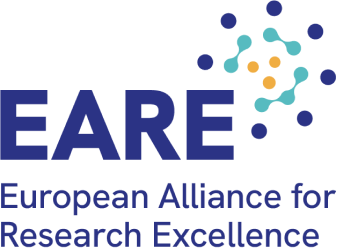
European researchers and innovators call for EU to reconsider copyright obligations in the AI Act
European researchers and innovators call for European Institutions to reconsider copyright obligations in AI Act
Brussels, 5th December, 2023
As the final trilogue on the Artificial Intelligence (AI) Act nears, the European Alliance for Research Excellence wishes to highlight the potential negative impact that requirements relating to copyright and introduced at a late stage in the AI Act would have on the capacity of startups, researchers and academics to innovate in Europe.
As Europe is pushing forward a strategic autonomy agenda, now is the time for policymakers to adopt legislations that will encourage European innovation in Europe. AI needs to be part of that effort. AI is revolutionizing research by automating tedious tasks, analyzing vast datasets to unearth hidden patterns, and developing simulations to model complex phenomena. It empowers researchers to focus on higher-level, creative endeavors, leading to groundbreaking discoveries particularly in key areas such as drug development, medical diagnosis, and climate change predictions.
To do so, AI tools use data scraping and data mining on legally accessible data. As set out in articles 3 and 4 of the Directive on Copyright in the Digital Single Market (CDSM), performing text and data mining on copyrighted works that one has legal access to does not infringe on copyright. Copyright law protects original works and not the raw data itself, and as such, using data for machine learning purposes should be considered as a fair use of copyrighted materials, as is the case in many jurisdictions already (US, Japan, Australia etc).
The existing copyright directive, adopted in 2019, allows rights owners to opt out, and prevent their data from being used for Text and Data Mining (TDM) purposes. The new language introduced in the AI Act would impose an ex-post transparency requirement, which would impose additional administrative and operational burdens on FM providers. We believe that the CDSM already provides sufficient safeguards by giving rightsholders the option to reserve the right for their works to be used to train algorithms, and that our main focus should be on developing standard approaches for complying with existing laws on copyright rather than creating new legal provisions without a thorough impact assessment to ensure a proportionate approach.
On the other hand, implementing opt-out provisions should not make the existing problem of biased AI algorithms worse. Bias in AI refers to the presence of unfair or discriminatory outcomes in the decisions made by algorithms, often reflecting the biases present in the data used to train these algorithms. To address issues of bias it is important to ensure that the data is collected from broad and varied sources, which often includes works protected by copyright. Therefore, the EU should also consider how to make more data available to enable AI applications. This implies a need to balance the need to opt out – reflecting the principles of privacy, consent, and control over one’s data – with the need to ensure that the training data used for the AI system is broad and diverse.. Balancing the access to valuable data with concerns about fairness, bias, and intellectual property rights is a complex task that requires careful consideration. This process should be carried out under the right tools and with the appropriate impact assessment.
Transparency and reproducibility of research is core to EARE’s values. However, obligations which touch upon transparency and openness of AI tools need to be proportionate, and any potential ramifications should be properly investigated and understood. The main focus today should be on enforcing existing laws on copyright rather than creating new legal provisions without a thorough impact assessment to ensure a proportionate approach.
For this reason, we urge the European Institutions to step back and to not include any copyright obligations in the AI Act and to agree on a balanced Regulation, which will be to the great benefit of citizens in Europe and will place the EU at the forefront of innovation and research.
About EARE: The European Alliance for Research Excellence (EARE) was convened in 2017, and now brings together seven members from the research and innovation ecosystem in Europe, including BSA | The Software Alliance, Allied for Startups, LIBER, LACA, Research Libraries UK, SCONUL (Society of College, National and University Libraries) and UCL (University College London) Library, advocating for the EU to live up to its innovation potential in the digital economy.
Download our statement here: EARE Statement_Artificial Intelligence Act


